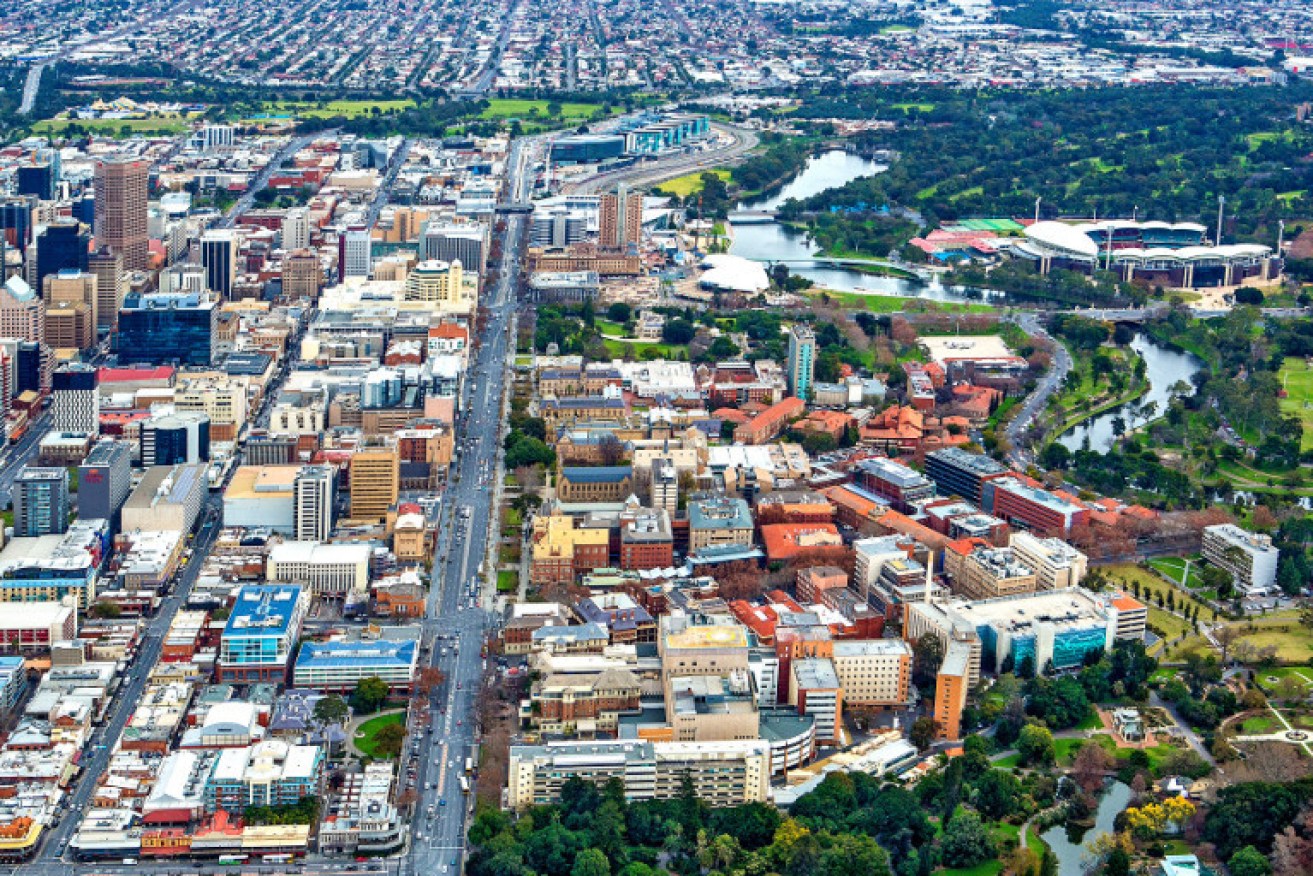SA universities team up for French subs company research lab
South Australia’s three major universities will collaborate with France’s central scientific agency and the company chosen to design Australia’s $52 billion Future Submarines to establish a joint defence research laboratory in Adelaide, InDaily can reveal.


The old Royal Adelaide Hospital site (bottom right) is understood to be the preferred location for the laboratory, with "hubs" also to be established at the universities' campuses.
Adelaide University, Flinders University and the University of South Australia have signed an agreement with French company Naval Group and France’s National Centre for Scientific Research to found an international research laboratory in Adelaide.
Naval Group was in 2016 selected to design 12 Attack class submarines for the Australian Navy, which are to be built at Osborne northwest of Adelaide, and to work on the sustainment of the Collins Class fleet.
South Australian-based shipbuilder ASC signed an agreement to work with Naval on key aspects the subs project yesterday.
The research lab will work on artificial intelligence, autonomous systems and ergonomics (otherwise known as “human factors”).
InDaily understands Lot 14 – on the old Royal Adelaide Hospital site in Adelaide’s CBD – is likely to play host to the lab, with “hubs” also expected to be set up at each university.
France’s Minister for Higher Education, Research and Innovation, Frédérique Vidal is in Canberra to sign off on the lab, among a number of other potential defence, education and research commitments.
University of Adelaide Vice-Chancellor Professor Peter Rathjen said he welcomed further collaboration with CNRS, Naval Group and the defence industry.
“The intersection of autonomous systems, artificial intelligence and human factors is one of the key frontiers of research today – areas we are pursuing with vigour,” he said in a joint statement to the media this morning.
“The opportunity to collaborate with some of France’s brightest minds on this frontier promises exciting outcomes.
“With our strong record in pure and applied research in the disciplines of human factors, AI and systems autonomy, the University of Adelaide understands that interdisciplinary research is a powerful means to enhance our contribution to human progress.”
Flinders University Vice-Chancellor Professor Colin Stirling said Adelaide was an ideal location for the laboratory.
“This is yet more evidence of South Australia being an unbeatable place to do business – by drawing on the specific research fortes of each university we collectively provide an unrivalled capacity in advanced research,” he said.
“In Flinders’ case, it’s the exciting emerging technologies we’re leading in autonomous systems, such as unmanned vessels that can undertake often hazardous tasks independently of human control.
“We’re also actively contributing to research involving psychology and innovation.”
UniSA Vice Chancellor Professor David Lloyd also welcomed the collaboration.
“This is a landmark opportunity to boost both Australian-French scientific cooperation and Australian sovereign technical capability in a range of key areas, including those that connect human factors with the physical aspects of maritime vehicles in novel ways,” he said.
“The University of South Australia is delighted to contribute to the laboratory its unique world-leading expertise in an interdisciplinary combination of research relating to Human Solutions for Complex Environments, including psychophysiology and behaviour, metrics-based ergonomic design and virtual reality and augmented reality.”
Late last year, a proposal to merge Adelaide University and the University of South Australia into a “super-university” failed after UniSA decided it would not be in its interests.
Want to comment?
Send us an email, making it clear which story you’re commenting on and including your full name (required for publication) and phone number (only for verification purposes). Please put “Reader views” in the subject.
We’ll publish the best comments in a regular “Reader Views” post. Your comments can be brief, or we can accept up to 350 words, or thereabouts.
InDaily has changed the way we receive comments. Go here for an explanation.




